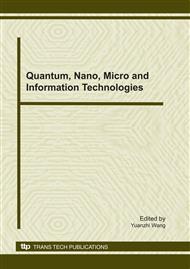p.295
p.306
p.312
p.317
p.322
p.326
p.332
p.338
p.342
MAS-Based Urban Rail Transport Ridership Forecast System and Traffic Generation Analysis
Abstract:
Ridership forecast of urban rail transport is one of the important bases for urban rail transport network planning, design, construction and operation. MAS-based ridership forecast system was designed and the architecture was proposed. The traffic generation forecast analysis was made from the three aspects of overall size forecast, resident population forecast and floating population forecast. The results showed that the system had the excellence of satisfying the randomness, non-linear and non-deterministic case for the strong adaptability, robustness and flexibility.
Info:
Periodical:
Pages:
322-325
DOI:
Citation:
Online since:
November 2010
Authors:
Price:
Сopyright:
© 2011 Trans Tech Publications Ltd. All Rights Reserved
Share:
Citation:


